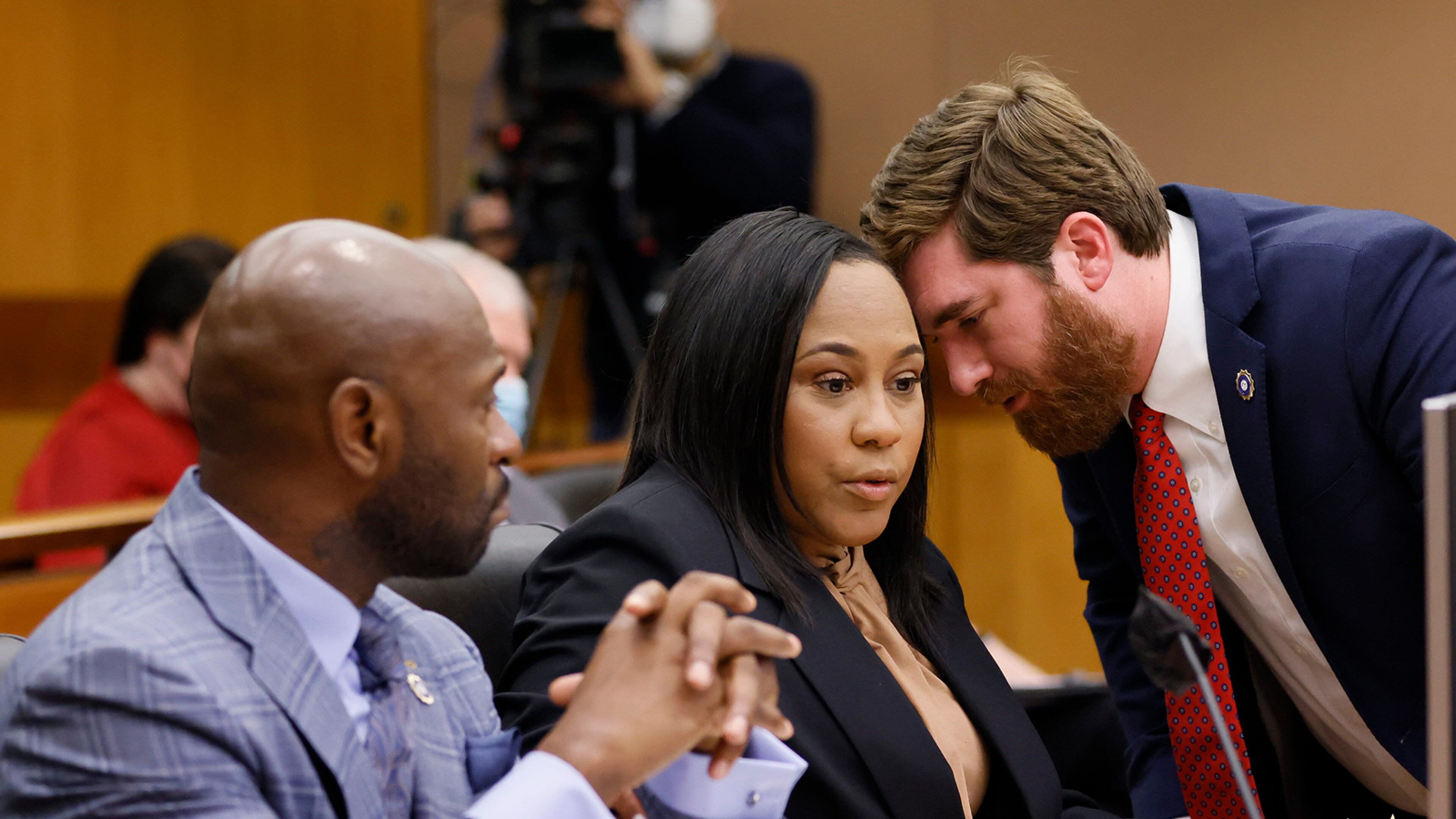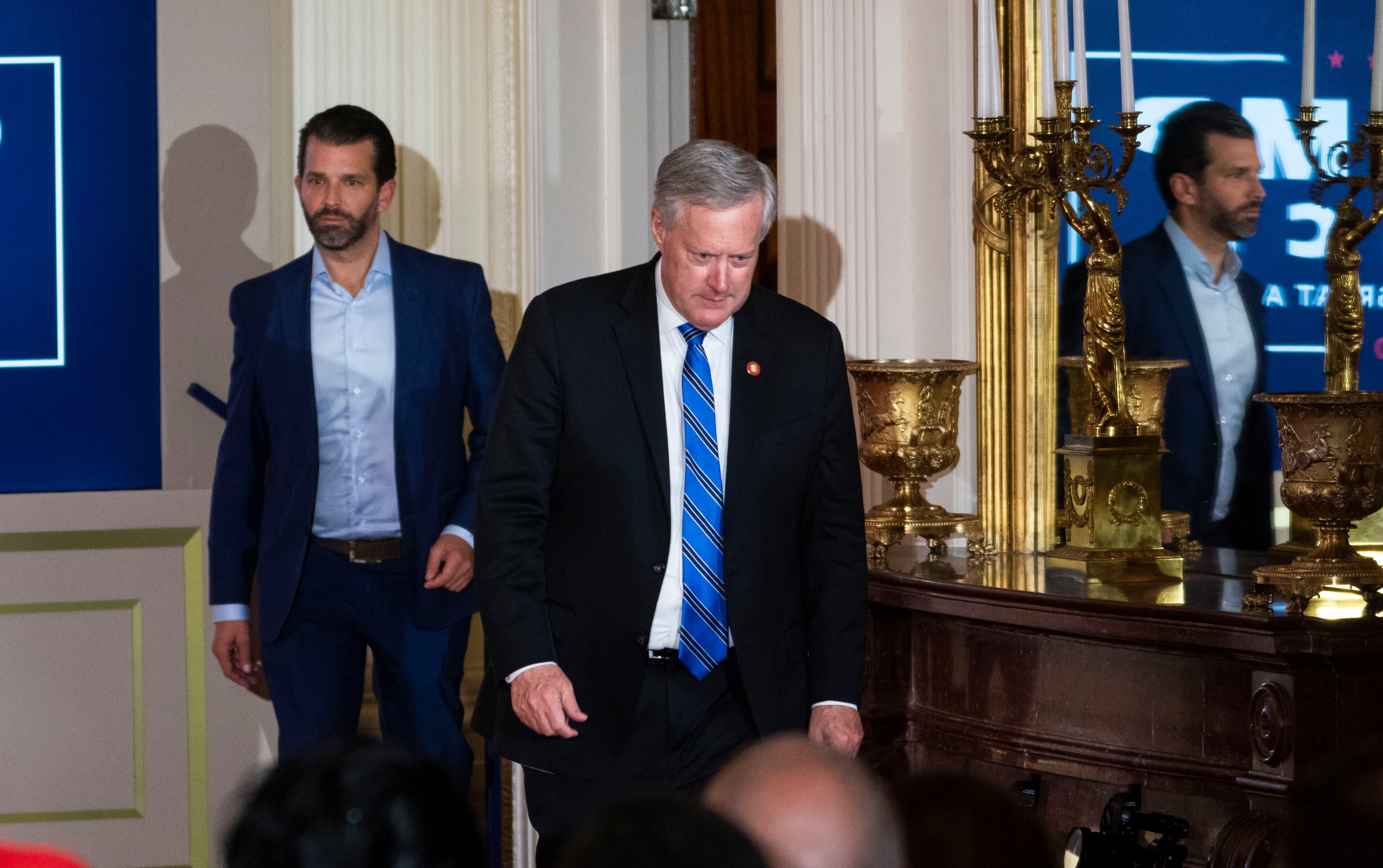Willis fights back against Meadows’ push to remove charges from Fulton

Former White House Chief of Staff Mark Meadows acted far beyond the bounds of his federal duties when he involved himself in the 2020 elections in Georgia and other swing states, according to Fulton prosecutors.
In a new federal court filing on Wednesday, the district attorney’s office contended that Meadows violated the Hatch Act, which bars federal employees from engaging in political activity as part of their official roles.
“An evaluation of the actions named in the indictment makes clear that all of them were intended to ‘interfere with or affect’ the presidential election in Georgia and elsewhere in order to somehow transform Mr. Trump from an unsuccessful candidate into a successful one,” Fulton DA Fani Willis and one of her deputies, Donald Wakeford, wrote in the filing.
“The activities are precisely the type which other courts have already determined to be ‘unofficial’ and therefore beyond the color of the defendant’s office, and he can point to no presidential authority that would bring the activities within the scope of his official duties.”
The 22-page document came in response to Meadows’ push to move the criminal charges filed against him in Fulton County to federal court. U.S. District Court Judge Steve Jones is scheduled to hear the matter on Aug. 28. The DA’s office is pushing for Jones to remand the case to Fulton Superior Court.
Meadows and co-defendant Jeffrey Clark, a former top U.S. Department of Justice official, had pushed to delay surrendering to the Fulton County Jail until a decision on federal removal but they were denied. They must be booked at the jail before Friday at noon.
Meadows was charged last week with racketeering and solicitation of violation of oath of by a public officer in conjunction with actions he undertook after the 2020 elections in Georgia and Pennsylvania. Eighteen others , including Clark, were indicted alongside him, including former President Donald Trump.
Among the acts cited in the indictment were Meadows’ unannounced Dec. 2020 visit to the Cobb County Civic Center as a signature match audit was underway, and his successful effort to put Trump in touch with Frances Watson, then the Secretary of State’s chief investigator who was helping carry out the audit. The indictment also singles out Meadows’ role in Trump’s Jan. 2, 2021, phone call to Georgia Secretary of State Brad Raffensperger, during which the president urged him to “find” 11,780 votes.

Raffenspger was told to expect a subpoena to testify at Monday’s hearing, The Atlanta Journal-Constitution previously reported. Two Trump-aligned attorneys who listened in on the Trump-Raffensperger call, Kurt Hilbert and Alex Kaufman, were also served summons.
Willis and Wakeford’s arguments in their court filing provide a preview of what the DA’s office will argue before Jones next week.
Meadows “can offer no plausible federal defense,” argued the prosecutors, who go item by item into the acts Meadows’ was involved in that are cited in the indictment.
Visiting the Cobb County audit, they said, “had no connection to any federal executive branch authority, duty, or power.” Arranging Trump’s call with Watson “was clearly political activity prohibited by the Hatch Act.” Regarding the Raffensperger phone call, Willis and Wakeford said that at no point did Trump or Meadows “cite or acknowledge any federal authority concerning the topics discussed.”
“Since the defendant was forbidden by law to use his authority or influence to interfere with or affect the result of an election or otherwise participate in activity directed toward the success of Mr. Trump as a candidate for the presidency, every single one of these activities fell outside the scope of his duties, both as a matter of fact and as a matter of law,” the prosecutors argued.
Meadows’ has cited the 234-year-old federal removal statute, which allows federal officials charged with state crimes to move them to federal court if the alleged criminal behavior was carried out as part of a person’s official duties.

Meadow’s attorneys argued that all of the acts that form the basis of the indictment “all fall squarely within his conduct as Chief of Staff.”
“Nothing Mr. Meadows is alleged in the indictment to have done is criminal per se: arranging Oval Office meetings, contacting state officials on the President’s behalf, visiting a state government building, and setting up a phone call for the President,” they said.
If successful in his removal push, the former Republican congressman will argue that a federal judge should dismiss the charges against him because he’s immune from state charges for the work he did when he was a federal official carrying out his job.
Wakeford and Willis argued that while federal removal is meant to protect federal functions from state interference, “that was not a risk in 2020 or 2021 and is not a risk now.”
Noting that conducting elections and counting ballots are state, not federal functions, they wrote, “there is no authority anywhere for the President or his Chief of Staff to insert themselves into the electoral processes of the state of Georgia, meaning none of the defendant’s actions were either necessary or proper.”



